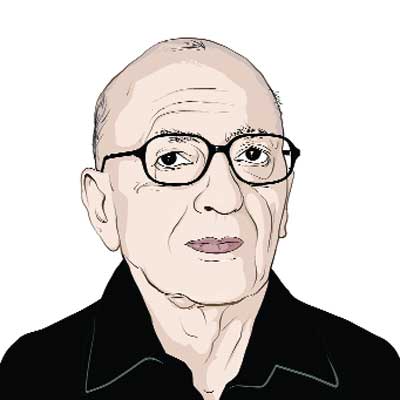Opinion How rude reality set in at Thagla
General Kaul,the defence ministers controversial and confident pick,was fazed by the Chinese challenge.
It took the government leadership some time to respond to the objections raised by Lieutenant-General Umrao Singh,General Officer Commanding (GOC) of the Siliguri-based XXXIII Corps to its still-secret directive to the army to evict the Chinese that had intruded well south of the McMahon Line at Thagla ridge (Grave Mistakes after Galwan,IE,July 4). The reason was that Nehru was away at the Commonwealth Prime Ministers Conference in London and the more directly concerned defence minister Krishna Menon was at the UN General Assembly. This clearly indicated that they did not expect any big bust-up with China. At the same time,both were anxious that their government must be seen to be acting against the expanding Chinese encroachments.
So it was on October 3 that Menon in consultation with the chief of the army staff,General P. N. Thapar,and Lt Gen L. P. Sen,GOC-in-C of the Eastern Army Command decided that Umrao Singh had to be replaced. Ironically,Thapar had earlier shared Umraos misgiving that the Indian army was in no position to take on the Chinese with their superiority in numbers,equipment and logistics. But in the third week of September,after Menons instructions by phone from New York,the defence ministry had overruled the army chief,in a note signed by H.C. Sarin,then joint secretary in the ministry,later defence secretary and always a confidant of Menon.
Who was to succeed Umrao Singh was the next question. Thapar recommended Lt Gen Sam Manekshaw,and received a mouthful from an enraged defence minister. Strangely,the army chief seemed not to be aware that Sam was Menons bete noire. Menons own choice was Lt Gen B.M. Kaul,his favourite,then serving as the Chief of General Staff (CGS) at the army headquarters. Another source of Kauls immense influence was he was distantly related to the prime minister. As the future trajectory of tragic events cruelly showed,Kauls choice as the battlefield commander was a mistake of monumental proportions for the country as well as for himself. It is worth adding that Kauls appointment in 1959 as the CGS by superseding some of his seniors was one of the reasons for the row between Menon and Gen K.S. Thimayya,arguably Indias most popular army chief so far.
This said,let me not be unfair to Kaul and ignore his many qualities. He was an excellent,indeed outstanding,military bureaucrat. He was also a man of phenomenal energy,drive and dynamism,exceeded only by his ambition. No matter how difficult the task assigned to him,his response was can do. Actually,he tended to overdo it. Unfortunately,he had hardly any combat experience and this turned out to be a fatal flaw.
Characteristically,Kaul left to assume his new responsibility the very next day after making sure that this landmark in his career would be reported adequately in both The Times of India and The Statesman. The Times story was under the byline of G. K. Reddy (though Kaul had personally tipped off Prem Bhatia,then the papers resident editor and later Delhi editor of Indian Express). I wrote the item in the Statesman on the basis of information conveyed by a trusted aide of Kaul.
Both Reddy and I made one mistake. We reported that Kaul had been appointed commander of the task force formed to evict the Chinese from Thagla. The reality was different,complex and somewhat phony. As the ministry of defence (MoD) clarified,Kaul was to head the newly raised IV Corps based at Tezpur. In fact,Kauls Corps was a phantom. No new troops except for the Corps headquarters staff were sent to it. He had to make do with the meagre forces already deployed. At the same time,Umrao Singh was not sacked. He continued to command the Siliguri Corps but his jurisdiction was confined to Sikkim,Nagaland and the East Pakistan Front. The whole of North East Frontier Agency (NEFA),now Arunachal Pradesh,threatened by the Chinese,was made Kauls exclusive domain.
True to his style,on his very first day at Tezpur,Kaul flew to Lumpu and then trekked to Namkachu valley where Brigadier John Dalvis 7 Infantry Brigade faced the more numerous Chinese occupying the commanding heights. No general officer had ever before visited Namkachu. Despite his gung-ho personality,Kaul was shaken by what he saw of the terrain and the enemy. After this brush with harsh reality,he sent from the spot a string of top priority signals that had a sobering,not to mention dismaying,impact on the army and the (defence) ministry,in the words of Maj Gen D.K. Palit,then Director of Military Operations at the Army Headquarters in the rank of a brigadier.
However,such was Kauls make-up that despite having discerned the grave vulnerability of Indian positions,he ended his dispatch reassuringly,telling New Delhi that he would take the first step to implement its directive before October 10. Ironically,it was exactly on that day that the Chinese delivered a far more shattering blow.
On October 9,in keeping with his promise to initiate some action,Kaul sent a platoon-strong patrol to take control of Tseng Jong,a small knoll somewhat to the northwest of the Chinese positions that they hadnt occupied. Kaul calculated that once the Indian patrol got there,the knoll could be used as a jumping point. In launching this operation,Kaul had brushed aside warnings by Brigadier Dalvi and the divisional commander in the area,Maj Gen Niranjan Prasad. Surprisingly,the Chinese did nothing to stop the Indian patrol. But the platoon reported late in the evening that the Chinese were massing a whole battalion against it,and he therefore expected an attack at dawn.
Nothing happened at first light on October 10. An hour later,however,nearly 800 Chinese soldiers,supported by mortar fire,threw an assault and wiped out the Indian patrol at Tse Jong. According to Prasad,Kaul was too stunned for an hour or so to speak coherently. All he said later was that Delhi would have to do a complete rethink.
The writer is a Delhi-based political commentator



